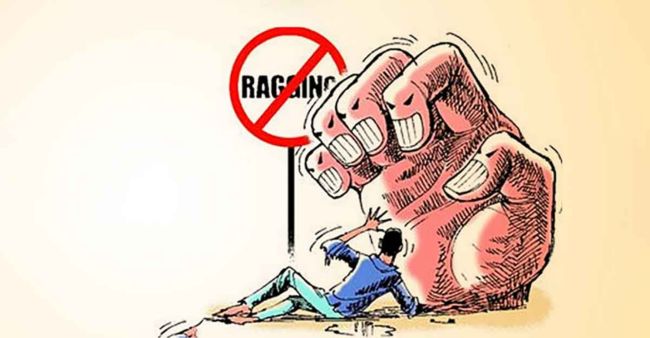UGC’s anti-ragging regulations are mandatory for universities and colleges.
What happened at Jadavpur University (JU) hostel on 10 August 2023 was unfortunate. The death of first-year student Swapnadeep Kundu at JU sent shock waves nationwide. There are allegations of ragging on the campus. Only a thorough investigation can unearth the truth. Which parent would like this to happen to their kids, and which university would want to be flagged for their incapable handling of such incidents? Our collective apathy towards such incidents is because we think ragging is somebody else’s problem, just as we believe accidents will happen to someone else. We will realise the gravity when calamity strikes us uninformed. But by then, it is already too late—the loss of a precious life and a broken family.
The transition from high school to university is an essential step in a student’s life, offering prospects for scholarly advancement and exploring a new world. But unfortunately, this enthusiasm can be overshadowed by a particular undesirable facet of university life called ragging. Incidents involving ragging have often drawn our attention for their negative impact on students’ mental and emotional well-being. Ragging can lead to detrimental consequences such as depression, increased university dropouts, and even sad instances of suicide.
The Supreme Court of India has defined ragging as “any disorderly conduct, whether by words spoken or written, or by an act which has the effect of teasing, treating or handling with rudeness any student, indulging in rowdy or undisciplined activities which cause or are likely to cause annoyance, hardship or psychological harm or to raise fear or apprehension thereof in a fresher or a junior student and which has the effect of causing or generating a sense of shame or embarrassment so as to adversely affect the psyche of a fresher or a junior student.”
How can we make our institutions free from ragging? It is by cultivating a sense of community and inclusivity through peer support networks. When students feel connected and supported by their peers, they are less likely to suffer from the destructive behaviours of senior students. In higher education institutions, faculty and staff members must actively encourage a respectful and inclusive environment that develops the tone for positive student interactions. Their engaged involvement can inhibit students from ragging and creating a cultural norm on campus. Students are likelier to blend into these norms and treat their counterparts respectfully.
Both effective deterrent mechanisms and awareness campaigns are required to stem ragging. Institutions must embrace commitment to sustaining a safe and respectful environment for all students. Awareness drives must underline the importance of mutual regard, kindness, and promoting healthy student relations.
Universities also have to actively nurture values such as empathy, compassion, and teamwork to foster a culture that is less conducive to ragging. Unhealthy behaviours will likely decline when students are motivated to embody these values.
Universities must designate easily accessible, effective channels of communication for reporting incidents of ragging, which prompts students to come forward, allowing the authorities to take quick action against the offenders.
The establishment of the 24/7 anti-ragging cell by the University Grants Commission (UGC) is a crucial step to ensure students’ safety, well-being, and mental health in higher education institutions. This cell plays a vital role in preventing and addressing ragging, which has plagued educational institutions and threatened students’ physical and psychological welfare. Beyond addressing individual incidents, the cell creates awareness about the consequences of ragging and the importance of maintaining a respectful and inclusive campus environment. This preventive approach aims to change the culture surrounding ragging.
In cases where ragging involving criminal activities or serious violations are reported to the cell, the cell informs the university authorities and the local police to ensure action against the perpetrators. The cell collaborates with educational institutions to implement anti-ragging policies, conduct awareness programs, and establish grievance redressal mechanisms within each institution.
UGC has implemented comprehensive anti-ragging regulations to curb ragging in educational institutions. These regulations are designed to create a safe and supportive student environment. The UGC’s anti-ragging regulations contain vital points and guidelines that institutions must adhere to, to prevent and address ragging incidents effectively.
For example, the regulations mandate the establishment of a grievance redressal mechanism to address complaints related to ragging. Institutions must include anti-ragging provisions in their prospectus and other relevant documents and ensure their campuses are ragging-free zones. They must also obtain an undertaking from students and their parents that they will not participate in or abet ragging.
The UGC anti-ragging regulations are mandatory for universities and colleges. Recently, UGC has made it compulsory for all universities to form student grievance redressal committees and appoint an ombudsperson to address student concerns.
While many Indian universities have taken steps to enforce anti-ragging policies, there have been instances where these policies have not been effectively executed, leading to the continuance of ragging incidents. Institutions must provide confidentiality in reporting to enable more students to register ragging incidents with the authorities. Universities must demonstrate their commitment to eradicating ragging by taking a zero-tolerance approach. Faculty and staff members could explore assuming an active role in organised initiation, where seniors can make fun contests and activities to integrate the juniors. Are you listening?
Mamidala Jagadesh Kumar is Chairman, UGC and former VC, JNU. Views are personal.

